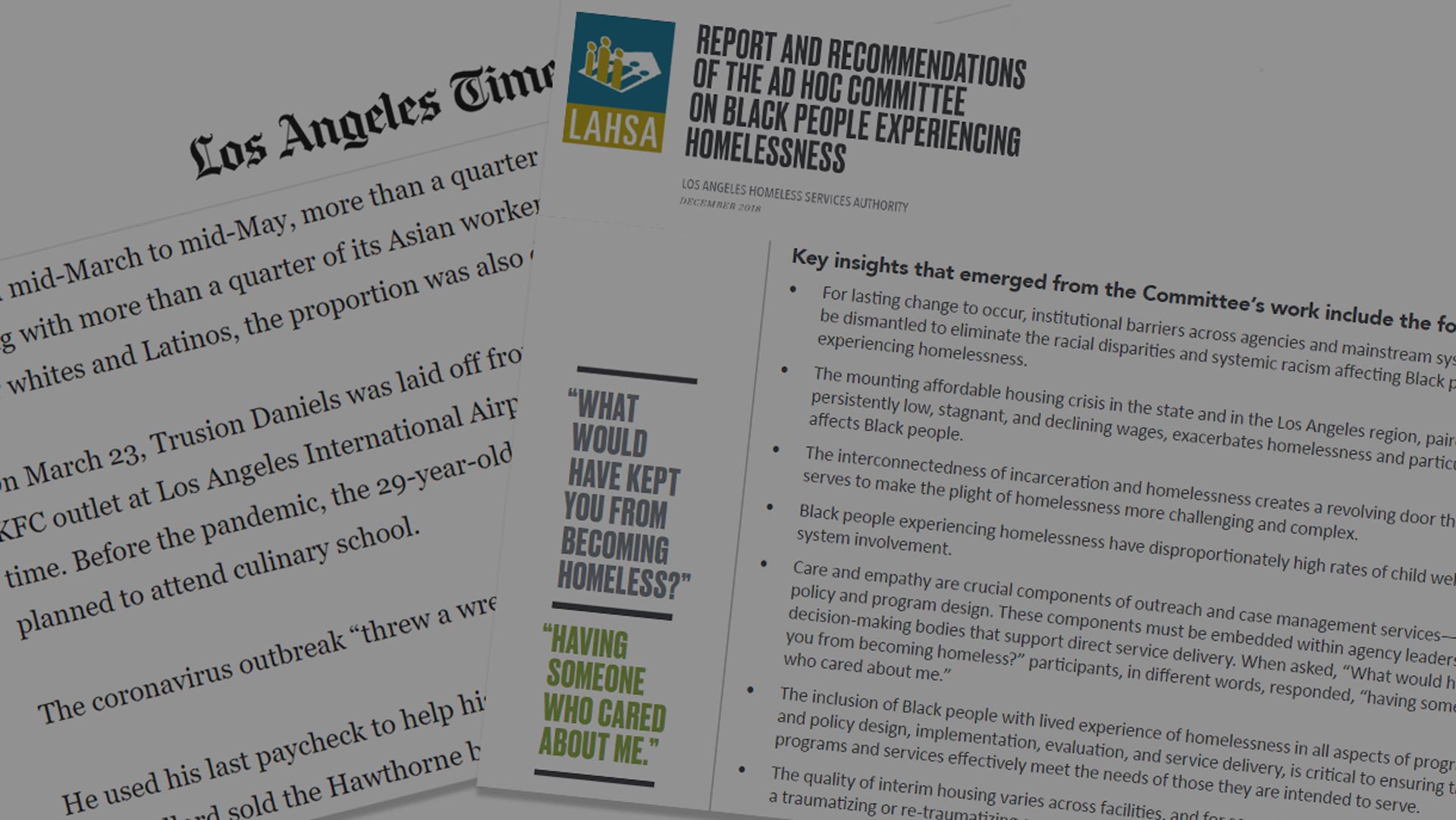Recently, we sent you a note about our commitment to stand with Black leaders and community members who are working to change our country for the better. In continuation, we are writing to express that we believe we have an opportunity right now to address and challenge a broken system – one that is supposed to protect and serve but instead fails and discards so many. There is continued attention and space that we need to hold while we grow with the Black Lives Matter movement and as the country reopens in the face of the continued coronavirus pandemic.
Remember that every number and percentage point is a person.
May’s labor report calculated a decline in the nation’s unemployment rate down to 13.3%, but for African Americans, the number grew to 16.7%. In a recent Los Angeles Times article, the paper reported on these numbers and highlighted the economic inequities and “California’s historic expansion of incarceration” that have impacted this community and created barriers so difficult to navigate that when employment is obtained, it often must be supplemented with another job in order to make ends meet. Inequities in access to and type of work are further illuminated by the fact that 48% of essential workers who have been working during the pandemic in California are Black, and they are experiencing the highest rate of deaths from Covid-19 – 26 per 100,000 residents in Los Angeles County. Furthermore, 4% of the folks who tested positive or died from Covid-19 in Orange County were African American, though they only make up 1.7% of the local population.
More than a year ago, the Los Angeles Homeless Services Authority released a report and recommendations on Black people experiencing homelessness. The report found that more than one-third of the individuals experiencing homelessness are Black in a county where they make up 9% of the population. Further, the ad hoc committee reported, without mincing words, that structural racism, discrimination, and unconscious bias in housing, employment, criminal justice, and child welfare policies have led to overrepresentation of Black people experiencing homelessness.
Showing up for each other. Bringing the numbers together for change.
For 36 years, Chrysalis has been focused on helping people secure employment and identify their path toward achieving their personal goals. We envision a community in which everyone has the opportunity to work and thrive. It is painfully evident that systemic racism is something that will thwart the pathway to our vision.
Above, we shared a link to LAHSA’s report about Black folks and their experience with homelessness. If we pull back our lens and look nationally, 40% of the individuals experiencing homelessness in the country are Black. That is also the exact same percentage of Black Americans in the incarcerated population, despite representing 13% of the US population.
At Chrysalis, half of the individuals who access services are Black, 60% have been involved in the criminal justice system, and 81% have experienced unstable housing. Things like housing or seeing if there is an opportunity for record expungement are key groundwork items that Employment Specialists cover with clients before much of the job search work can even get underway. That’s what we can do on the surface, but we also strive to seek ways to get down to the root.
We have been able to ask for and receive a seat at the table with collectives and advocacy groups addressing these root issues. To recognize a few from more recent years, Chrysalis has been grateful to add our voice on behalf of our community to proposals such as Measure H and Proposition HHH as well as initiatives led by LARRP, the United Way of Greater Los Angeles’ Everyone In campaign, and the Provider Alliance to End Homelessness.
It is imperative that we continue to dedicate our energy and support behind those in our community who are working toward systemic change. Among key advocates are Black Lives Matter, JusticeLA, Ground Game LA, the Los Angeles Black Worker Center, the LA County Public Defenders Union, and many more. Please consider learning more about these entities by visiting their websites, following them on social media, and getting involved.
Learn more about our internal and external response and access resources to help you take action. Thank you for supporting Chrysalis in changing lives.
